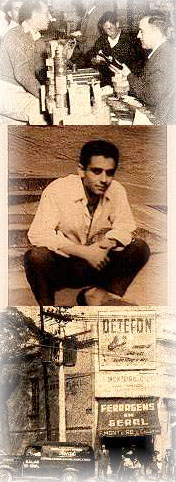Final thoughts ...The educational potential for ‘real stories’ on the net actual precedes the net by many years in the work of the Sylvia Ashton-Warner, Paulo Freire and Eliot Wigginton. Sylvia Ashton-Warner author of Teacher (1963) and Paulo Freire, the author of Pedagogy of the Oppressed (first published in English in 1970) both used ‘real’ stories to teach literacy. Ashton-Warner used the real stories of the real Maori people to create meaningful readers for Maori children who were definitely not turned on by Dick & Jane readers. Freire’s critical literacy theories rested upon impoverished adult learners reading and writing real stories about their real lives. This had a two-fold effect. First, the stories were interested because these were stories they could identify with so they paid more attention. Secondly, reading and writing these real stories were ways for the learner to understand the circumstances of their own lives and make meaningful change. In 1966, Eliot Wigginton came to Appalachian Georgia to teach high school English. Supposedly his first students were so unimpressed with his teaching that they actually set fire to his podium. He realized he needed to do something different so he suggested that the students create a literary magazine. There was some negotiating between Elliot and the students and it was agreed that they would create a magazine telling the stories of the lives and skills of the community elders. This small collection of real stories for a small literary magazine eventually reached book form and sold over 8 million copies. The Foxfire Magazine is still produced twice annually by the high school students of Rabun County, Georgia. The Museu da Pessoa is collecting and publishing the real lives of real people in Brazil. Their intention is for every country to have their own ‘Museum of the Person,’ collecting their own special stories of ordinary people in Poland, Indonesia, Serbia and the rest of the world. The Museu da Pessoa is a museum of stories. Like museums and libraries everywhere it is just a resource upon which talented teachers will build all sorts of educational experiences. These will be powerful experiences because these are powerful and real stories, stories just like they were told thousands of years ago in caves. The technology is new but the stories are old and the same regardless of language. The Museu da Pessoa can be reached at
Phone: 55 11 8144912 |

|
|
Sincerely, Thom , your maitre d’Igital for the CafeTechnos |
|